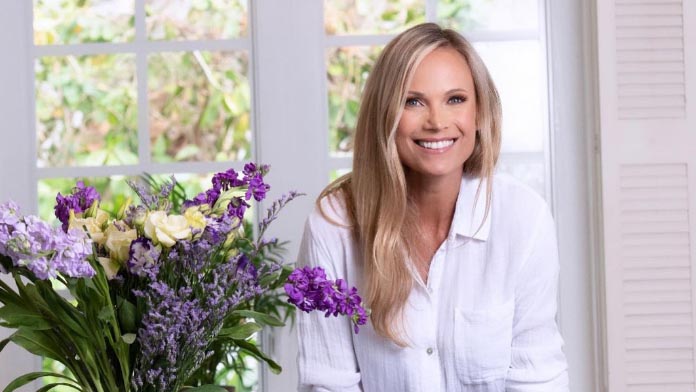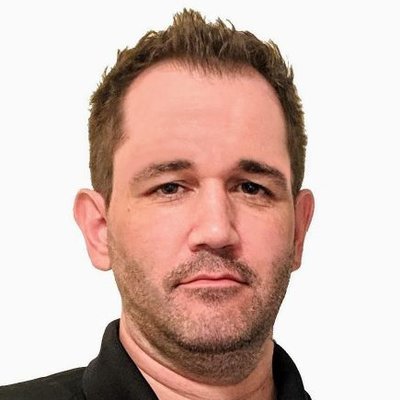Patrick Williams, TheAHL.com Features Writer
The Syracuse Crunch have always operated little differently.
From the moment the organization came to town in 1994, they have made hockey work with creative marketing. They held the AHL’s first outdoor game in 2010. They packed 30,715 fans into the Carrier Dome in 2014. A highly productive affiliation with Tampa Bay has brought two trips to the Calder Cup Finals and two Stanley Cups for the Lightning.
“When we came to the league in 1994, we were a bit different,” Crunch owner and president Howard Dolgon recounted.
But what about the front office that works to put on those 36 nightly shows each AHL season? Syracuse has 10 sets of home games on back-to-back nights this season. On four occasions the team will stage three home dates in four nights. The hours and the stress can and will accumulate quickly.
“In this high-stress world we live in sports,” Dolgon said, “sometimes we don’t make [the mind] a priority, and for a long time we didn’t. We think it’s important that it’s part of our process.”
So Dolgon, the mind behind so much of that creative marketing for the past three decades, had an idea. Dolgon, who lives in Florida, had been working with Ulrika Eriksson, a life coach and certified yoga instructor whose work also extends to mindfulness and meditation. Dolgon wondered whether some of those lessons could help his staff in Syracuse.
As the idea grew, Dolgon needed someone with versatility, someone who could relate well to a varied group of people. Like staff in any profession, the front office in Syracuse varies in ages and respective stages in life. Some are relatively new to the professional world. Others have decades of experience.
“With the stresses of business, to try to keep things in perspective and live in the present, I felt personally that it really helped me,” Dolgon said of working with Eriksson. “It slowed me down in the sense of a calming influence. It’s given me a different perspective on things. You’re never too old to adjust and try to better yourself.
“We’ve got a young staff. We ask a lot of them. Especially during the season, it’s a frenetic pace, the pressure of selling sponsorship and tickets and the everyday operations.”
So Dolgon pitched his idea to Jim Sarosy, the team’s chief operating officer, and senior vice president of business operations Vance Lederman. The program would be voluntary – and, the Crunch stress, confidential – for any staff member who wished to participate. And as with past initiatives, Dolgon could rely on his executive leaders to execute his plan – but only if they felt there was an organizational fit.
“I wanted Jim and Vance to spend time with her and to have a better understanding of what her role would be with the organization,” Dolgon explained. “Let them get either a level of comfort or not. If they didn’t, we probably would have not gone forward with it.”

But Sarosy and Lederman did like the idea, and now the Crunch have the AHL’s first team mindfulness coach. Approximately 80 percent of the team’s front office have signed on for Eriksson’s assistance.
Players have long had access to ample off-ice resources. Why not a front office?
“Our group in the front office is going through a lot of the same things [as players],” Sarosy points out. “It’s a very competitive business. We post a job, we’ll get hundreds of people to apply for it.”
And while Eriksson is new to working in pro hockey, she has plenty of family roots in the sport. Her uncle, Willy Lindstrom, was part of the wave of Swedish talent that came to North America in the mid-1970s; he went on to win three championships with the World Hockey Association’s Winnipeg Jets before winning the Stanley Cup twice with the Edmonton Oilers.
“I’m Swedish-born-and-raised,” Eriksson said, “so hockey is in the blood.”
Eriksson came to Syracuse this summer with a clear mandate: reduce stress for members of the front office. A clear mind is a focused mind. She will be making monthly trips to Syracuse to work with the Crunch front office.
Eriksson has put her own life experience to use, picking up more than a few lessons along the way that she might be able to pass on. She was first introduced to these practices in school at age 14 and later broke into the modeling industry, turning to yoga and meditation to manage the stresses of that profession.
Eriksson, who meditates at least twice daily, says it keeps her grounded.
“Swedes have a little bit of a different way of looking upon things. Growing up, it was all prevention. What can we do to feel better and not get sick? You take care of your body and your mind.”
Thinking back to those school lessons, Eriksson remembers being part of a study to determine how much meditation and relaxation could improve one’s academic performance, peer relations, and more.
“Across the board everything improved, and that really planted the seed in me,” she recalls. “The past 20 years, yoga has been a big part of my life.”
Eriksson has used yoga, meditation and mindfulness to guide her through life.
“[Meditation] really changes your mindset, the mindfulness as well, because it’s about awareness – being fully aware of where we are here and now,” Eriksson outlined. “We live our lives often on autopilot. We do without thinking about what we’re doing. And we overthink things, and we assume things, and we take things personally, and that mind is constantly going.
“This life is good and bad. Instead of being on high highs and low lows, you find the middle of the road. You navigate things better, which does bring clarity, better awareness, focus, memory. You handle stress and anxiety way better.”
She also compares the mind and the body. Rest and recovery are vital for physical training. The mind is the same, Eriksson believes, especially in an exceptionally fast-paced world in which people want answers now, smartphones are ubiquitous, and social media can provide its own pitfalls.
“With muscles, the recovery time is really when everything happens,” Eriksson continued. “You need to do the same for your brain. By slowing down, you’re going to have better focus. You’re going to have clarity, and you feel better. You can better respond to what’s coming at you.”
Everyone’s wellness picture is different. Are you sleeping well? Eating right? Exercising? Maybe sometimes people just need to talk.
“A lot of people don’t have someone to talk to,” Eriksson points out. “They just need to vent a little, just have someone to hold that space.”
Sarosy, who came to the Crunch in 1995, acknowledged that while he’s proud of the relationships he builds with his staff, he is still their boss – “Subconsciously, they might act a little bit different around me,” he said – but Eriksson can be someone a staff member can open up to if needed.
And as society places a much stronger importance on mental health, Sarosy possesses enough experience to have seen the old-school approach yet has remained open to fresh ideas.
“When I first entered the league, it just wasn’t really talked about. I’ve seen such a wonderful change there, too. How can we be a more full-service organization? How can we be better for our employees?”
Eriksson’s presentation to Sarosy and Lederman clicked.
“Now that we’ve kind of dug into it, some of the staff has embraced it and it’s been really rewarding to see,” Sarosy added. “We’re just beginning to scratch the surface…giving our employees another tool in their tool belt to be the best version of themselves they can be. Not just here, but in their entire life. Bringing Ulrika on board is another way for us to challenge ourselves.
“One big message that I was hoping would come out of all of this would be that it’s okay to not be okay.”
As fall progresses and then winter arrives, the games will pile up on the Crunch schedule. So will the stress. The Crunch hope that the work staff members put in with Eriksson this summer and beyond can ease those pressures.
“We just think it’s such an important issue,” said Sarosy, who emphasizes that the program also can further take shape as needed.
Because, as Eriksson notes, “We’re all a work in progress, right?”

TheAHL.com features writer Patrick Williams has been on the American Hockey League beat for nearly two decades for outlets including NHL.com, Sportsnet, TSN, The Hockey News, SiriusXM NHL Network Radio and SLAM! Sports, and is currently the co-host of The Hockey News On The ‘A’ podcast. He was the recipient of the AHL’s James H. Ellery Memorial Award for his outstanding coverage of the league in 2016.